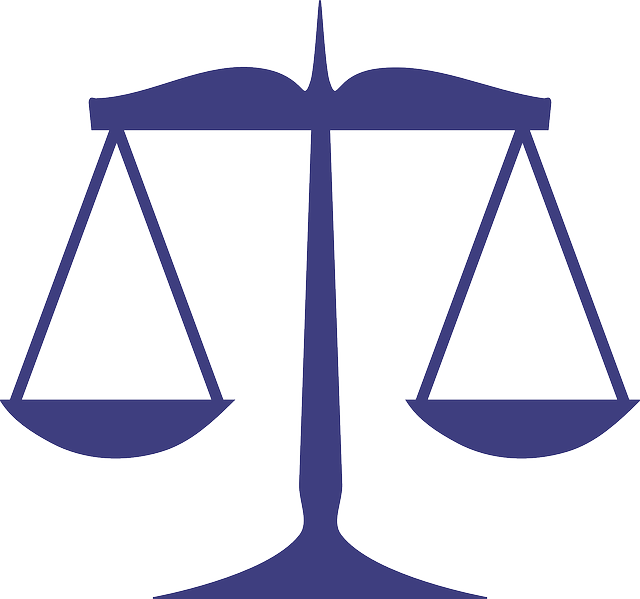Litigation risk arises from various factors throughout legal proceedings, including misunderstandings and contractual disputes. Effective evidence presentation, like Examples of Evidence in Criminal Trials, is key for outcomes in criminal trials and managing risk. Pre-trial preparation, involving case assessment, document review, and evidence collection, improves success chances. Post-trial analysis helps law firms learn from victories and defeats, refining strategies and enhancing client outcomes.
Litigation Risk Management is a critical aspect of any legal strategy, especially in criminal trials. This article explores the multifaceted approach to understanding and mitigating litigation risks, focusing on common causes, the role of evidence, pre-trial preparations, and post-trial analyses. By delving into these key areas, we provide insights that strengthen defense strategies and enhance successful outcomes. Discover practical steps and learn from real-world examples of evidence in criminal trials to navigate legal challenges effectively.
- Understanding Litigation Risk: Common Causes and Triggers
- Role of Evidence in Criminal Trials: Strengthening Defense Strategies
- Pre-Trial Preparedness: Key Steps to Mitigate Risks
- Post-Trial Analysis: Learning from Successes and Failures
Understanding Litigation Risk: Common Causes and Triggers

Understanding Litigation Risk involves recognizing that it stems from various factors and triggers across different stages of legal proceedings. Common causes often include misunderstandings, contractual disputes, and negligence—either intentional or unintentional. These issues can arise in any context, be it a general criminal defense case or complex corporate matters involving individual clients. For instance, miscommunication between parties can lead to broken agreements, fostering an environment ripe for litigation.
In the realm of evidence presentation during criminal trials, examples play a pivotal role. They serve as tangible links between facts and arguments, helping jurors comprehend complex issues. Effective use of evidence can significantly sway outcomes, demonstrating due diligence or lack thereof—a crucial aspect in managing litigation risk. Thus, understanding these causes and triggers is essential for both corporate and individual clients to navigate the legal landscape with proficiency.
Role of Evidence in Criminal Trials: Strengthening Defense Strategies

In criminal trials, evidence serves as the backbone of defense strategies, offering tangible proof to support or refute allegations. The presentation and interpretation of examples of evidence in criminal trials play a pivotal role in shaping the outcome for both defendants and prosecutors alike. Effective use of evidence can lead to achieving extraordinary results for clients, ensuring their rights are protected and potentially avoiding indictment.
Understanding how different types of evidence—from physical and eyewitness testimonies to forensic reports and digital records—can strengthen or weaken cases is crucial. By carefully scrutinizing and strategically employing these elements, defense attorneys can build compelling arguments that challenge the prosecution’s case. This approach not only helps in presenting a robust defense but also underscores the importance of rigorous investigation and preparation in navigating complex criminal litigation.
Pre-Trial Preparedness: Key Steps to Mitigate Risks

Effective pre-trial preparedness is paramount for litigation risk management, serving as a bulwark against unforeseen challenges and potential setbacks. It involves a strategic, multifaceted approach that encompasses thorough case assessment, comprehensive document review, and meticulous evidence collection. By meticulously preparing for trials, legal teams can significantly enhance their chances of achieving favorable outcomes in even the most high-stakes cases. This includes poring over relevant statutes, regulations, and precedents to craft robust legal arguments; identifying and preserving key pieces of evidence, such as examples of evidence in criminal trials, that might tip the balance; and developing effective strategies for questioning witnesses and presenting findings in a compelling manner.
Moreover, pre-trial preparedness necessitates an unprecedented track record of thoroughness and attention to detail. It involves anticipating opposing counsel’s moves, identifying potential weaknesses in one’s own case, and proactively addressing them. This proactive approach not only mitigates risks but also fosters the confidence needed to achieve extraordinary results, demonstrating a deep understanding of both the law and the specific nuances of each case.
Post-Trial Analysis: Learning from Successes and Failures

Post-trial analysis is a vital component of litigation risk management, offering an opportunity to reflect on both successes and failures in high-stakes cases like jury trials. By thoroughly examining the outcomes of trials, including those that resulted in winning challenging defense verdicts, legal teams can uncover valuable insights. This process involves a critical review of evidence presented, strategic decisions made, and overall performance throughout the trial.
For instance, analyzing examples of successful defenses can highlight effective tactics used to counter prosecution arguments. Conversely, looking at losses may reveal weaknesses in case preparation or presentation. This learning phase is crucial for enhancing future strategies, improving client outcomes, and ensuring the firm’s reputation in managing complex, high-profile cases.
Effective litigation risk management is pivotal for organizations to navigate legal challenges successfully. By understanding common causes of litigation, leveraging evidence strategies like those seen in criminal trials, and implementing robust pre-trial preparedness, companies can mitigate risks and enhance their defense. Post-trial analysis further reinforces learning, ensuring continuous improvement. Embracing these practices allows businesses to fortify their strategies, thereby fostering resilience against potential legal disputes.






